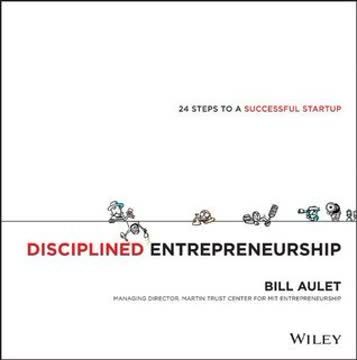Key Takeaways
1. Embrace the Disruptive Mindset: Create, Engage, Adapt
The true scarce commodity is increasingly human attention.
The attention economy. In today's world, attention is the most valuable resource. To capture and hold attention, marketers must adopt a disruptive mindset, constantly creating, engaging, and adapting to the ever-changing landscape. This means moving beyond traditional marketing methods and embracing innovative approaches that resonate with audiences on a deeper level.
From interruption to immersion. The old model of interrupting consumers with advertising is no longer effective. Instead, marketers must create experiences that immerse audiences in their brand and foster genuine connections. This requires a shift from broadcasting messages to facilitating conversations and building relationships.
Adaptability is key. The marketing landscape is constantly evolving, so marketers must be nimble and adaptable. This means being willing to experiment with new technologies and strategies, and to quickly adjust course when things aren't working. The ability to learn, unlearn, and relearn is essential for survival in the disruptive age.
2. Navigate the Disruptive Continuum: Perpetual Change is the New Normal
Species go extinct because there are historical constraints built into a given body or a given design.
Constant evolution. The business world is in a state of perpetual change, driven by technological advancements and shifting consumer behaviors. To thrive in this environment, marketers must embrace a mindset of continuous adaptation and innovation. What worked yesterday may not work today, so it's crucial to stay ahead of the curve.
From space and time to interaction and immersion. Marketing has evolved from paying for space and time in traditional media to targeting audiences based on intent in the digital realm. The next step is to create interactive and immersive experiences that engage consumers on a deeper level.
The joy of next. Disruptive marketers are always looking for the next opportunity, the next innovation, the next way to connect with their audience. This requires a curious and imaginative mindset, a willingness to experiment, and a relentless pursuit of improvement.
3. Thrive in the Anti-Organization Age: Unleash Creative Disruption
A creative economy is the fuel of magnificence.
The rise of the creative economy. The traditional corporate model, with its emphasis on control and certainty, is giving way to a more fluid and dynamic creative economy. In this new landscape, innovation, imagination, and collaboration are the keys to success.
From organization man to creative hybrid. The "organization man" of the 20th century is being replaced by the "creative hybrid" of the 21st century. These individuals possess a diverse skill set, combining technical expertise with creative flair and business acumen. They are able to think outside the box, challenge assumptions, and develop innovative solutions.
Embrace the anti-organization. To thrive in the creative economy, companies must embrace a more decentralized and collaborative structure. This means breaking down silos, empowering employees, and fostering a culture of experimentation and risk-taking.
4. Hybrid Thinkers > MBAs: Build Teams with Diverse Skills
The new workplace is creatively fueled. In commerce, disruption has become the norm. So the disruptive marketer must be both an analytical, creative hybrid and an expert able to deliver across both strategy and execution.
Beyond the MBA. While an MBA can provide a solid foundation in business principles, it's no longer enough to succeed in today's rapidly changing marketing landscape. Companies need individuals with a broader range of skills, including creativity, design thinking, data analysis, and emotional intelligence.
The rise of the creative hybrid. The most successful marketers are those who can bridge the gap between the analytical and the creative. They are able to understand data, identify insights, and then translate those insights into compelling stories and experiences.
Build diverse teams. To foster innovation and creativity, companies must build teams with diverse backgrounds and skill sets. This means hiring individuals from non-traditional marketing backgrounds, such as artists, designers, and engineers.
5. The New Personality of Marketing: Punk Rocker, Parent, Soccer Player
One thing I like about jazz is that it emphasized doing things differently from what other people were doing.
Beyond traditional skills. The skills that made marketers successful in the past are no longer sufficient in today's disruptive environment. To thrive, marketers must cultivate a new set of personality traits and skills, drawing inspiration from diverse sources.
The punk rocker mindset. Disruptive marketers embrace a DIY ethos, challenging conventions and breaking down barriers. They are not afraid to experiment, take risks, and challenge the status quo.
The new parent approach. Like new parents, disruptive marketers are adaptable, resourceful, and quick on their feet. They are able to learn from their mistakes and adjust their strategies in real-time.
The soccer player mentality. Disruptive marketers are strategic thinkers who can anticipate the next move and react quickly to changing conditions. They are team players who can collaborate effectively and adapt to different roles.
6. Tinkerers and "Temporary" Marketers: The Genius of Experimentation
The most disruptive thing in the market is not technology, but rather the customer.
The power of tinkering. The best marketing innovations often come from tinkering, experimenting, and trying new things. This requires a curious and playful mindset, a willingness to embrace failure, and a relentless pursuit of improvement.
The value of temporary marketers. "Temporary" marketers, whether they are freelancers, consultants, or employees on short-term assignments, can bring a fresh perspective and a willingness to challenge the status quo. They are not bound by the same constraints as permanent employees and are more likely to experiment with new ideas.
Embrace the gig economy. The rise of the gig economy provides companies with access to a vast pool of talented and experienced marketers who can be brought in on a project basis. This allows companies to tap into specialized expertise without the overhead of hiring full-time employees.
7. Content is King, Distribution is Queen: Master Both for Success
In old media, marketers paid for space and time. In emerging media, marketers will pay for audience and attention.
Content is no longer enough. While high-quality content is essential, it's not enough to guarantee success. In today's crowded digital landscape, distribution is just as important, if not more so.
Distribution science. Marketers must understand how content is shared, consumed, and amplified across different platforms. This requires a data-driven approach, analyzing user behavior and optimizing content for maximum reach and engagement.
The power of platforms. Social media platforms have become the new gatekeepers of content distribution. Marketers must understand how these platforms work and tailor their content to fit the unique characteristics of each one.
8. Social by Design: Build Relationships, Not Just Campaigns
There is an increasing trend away from consumers simply being influenced by brands, to the point where brands are now increasingly being controlled and influenced by their consumers.
Beyond social media marketing. Social by design is more than just using social media for marketing purposes. It's about building social principles into the very fabric of your organization, from product development to customer service.
Conversation is key. Social by design is about fostering genuine conversations with your audience, not just broadcasting messages. This requires listening, engaging, and responding to feedback in a timely and authentic manner.
Empower your customers. The most successful brands are those that empower their customers to create, share, and participate in the brand experience. This can involve user-generated content, co-creation initiatives, and open-source development.
9. Always Be Listening: Empathy as a Core Marketing Skill
The most disruptive thing in the market is not technology, but rather the customer.
Beyond data analysis. While data is essential for understanding customer behavior, it's not enough on its own. Marketers must also cultivate empathy, the ability to understand and share the feelings of others.
The art of listening. Disruptive marketers are skilled listeners, paying attention to what customers are saying, both online and offline. This requires actively seeking out feedback, monitoring social media conversations, and engaging in genuine dialogue.
Turn insights into action. The goal of listening is not just to gather information, but to translate that information into actionable insights. This means using customer feedback to improve products, services, and marketing strategies.
10. Don't Chase Shiny Objects: Focus on Data-Driven Insights
The true scarce commodity is increasingly human attention.
Beyond the hype. The marketing world is full of bright, shiny objects, from the latest social media platform to the newest data analytics tool. Disruptive marketers avoid getting distracted by the hype and focus on what truly matters: data-driven insights.
Data as a flashlight. Data is a powerful tool for illuminating opportunities and identifying problems. However, it's only as useful as the questions you ask and the insights you derive from it.
The power of experimentation. Disruptive marketers are constantly experimenting with new ideas and strategies, using data to measure their effectiveness and refine their approach. This requires a willingness to fail, learn from mistakes, and adapt quickly to changing conditions.
11. Give Back: Ethics as the New Marketing Imperative
Marketing to generate solely revenue and profit is so 20th century.
Beyond profit. In today's world, consumers are increasingly demanding that companies be socially responsible. This means going beyond simply making a profit and giving back to the community and the world.
Corporate social responsibility (CSR). CSR is no longer a nice-to-have, but a must-have for companies that want to attract and retain customers. This can involve supporting charitable causes, reducing environmental impact, promoting ethical labor practices, and fostering diversity and inclusion.
Authenticity is key. Consumers are savvy and can quickly spot companies that are simply greenwashing or engaging in performative activism. To be effective, CSR must be genuine, transparent, and aligned with the company's values.
12. Learn, Unlearn, Relearn: Embrace Perpetual Adaptation
The most disruptive thing in the market is not technology, but rather the customer.
The only constant is change. The marketing landscape is constantly evolving, so marketers must embrace a mindset of continuous learning, unlearning, and relearning. This means being willing to challenge assumptions, question conventional wisdom, and adapt to new technologies and strategies.
Beyond formal education. While formal education can provide a solid foundation, it's not enough to stay ahead of the curve. Marketers must also engage in informal learning, such as reading industry blogs, attending conferences, and experimenting with new tools.
The power of mentorship. Mentorship can be a valuable tool for learning, unlearning, and relearning. This can involve seeking guidance from experienced marketers, as well as mentoring younger professionals and sharing your own knowledge and expertise.
Last updated:
Review Summary
Disruptive Marketing receives mixed reviews, with an average rating of 3.53 out of 5. Positive reviewers praise its thought-provoking content, innovative ideas, and ability to challenge traditional marketing approaches. They appreciate the author's storytelling and diverse examples. Critics argue the book lacks depth, contains outdated information, and rehashes common digital marketing concepts. Some find it difficult to engage with or feel it offers limited practical insights. Despite divided opinions, many readers recommend it for marketers seeking fresh perspectives and those willing to rethink their strategies.
Similar Books







Download PDF
Download EPUB
.epub digital book format is ideal for reading ebooks on phones, tablets, and e-readers.




